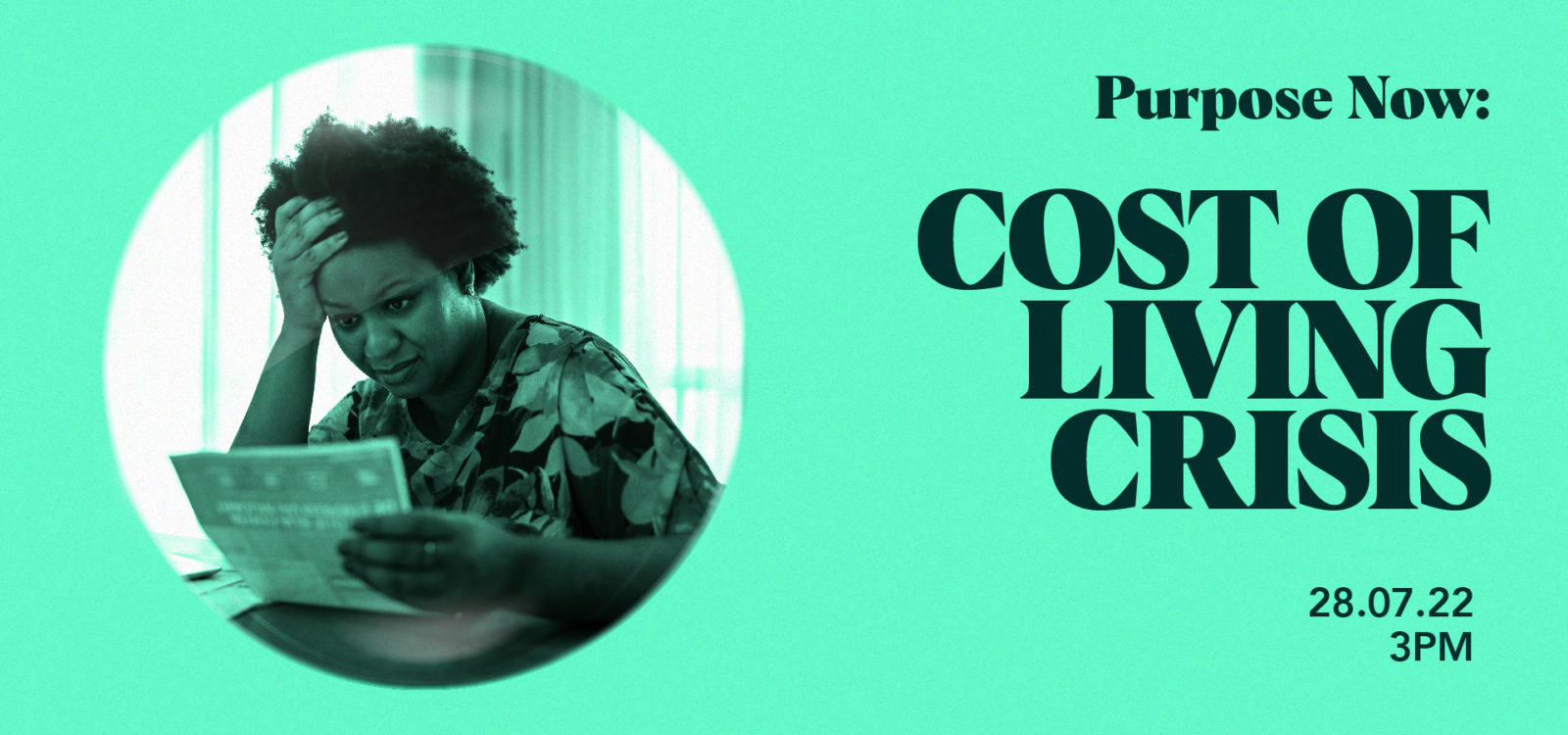
Purpose Now: Cost of Living Crisis
We’re moving from one crisis to the next, and brands and businesses are feeling the full impact of the cost of living crisis.
Hosted by GOOD’s Planning Director Pete Grant, and moderated by GOOD’s Managing Director Nilesha Chauvet, the first event in our new series, Purpose Now, delves into the state of Purpose amid the crisis.
We explore inspiring ways brands are adjusting plans to factor in the crisis into their social impact initiatives. We also share insight into new areas to be explored, including best-in-class practice examples.
Here are three key takeaways for those who couldn’t join us:
1) Brands need to be tackling symptoms as well as focusing on underlying causes
As the public looks to brands and businesses to take a lead role in helping to solve some of our wider societal and environmental problems as well as helping consumers with the immediate current cost of living crisis, they need to take a two-pronged approach. Firstly, they need to address the immediate symptoms affecting people’s daily lives, her and now. A good example of this is organisations freezing costs and prices wherever possible. A good example of this: Iceland cutting delivery charges, freezing £1 value range prices, and launching an over 60’s discount. Secondly, there also needs to be a longer-term approach, focusing on the underlying causes of financial vulnerability and creating long lasting impact. Lloyds is a good example, here. They’ve recently launched a mental health and money advice line to help customers who may be struggling.
2) Look after your staff
As well as the moral obligation to support staff, there is a financial necessity too. In the US, a study by Centre for Economics and Business Research found that 1 in 10 employees missed a day’s work because of financial strains. 1 In 5 lost productive hours, worrying about money – costing businesses £6bn. There are various ways organisations can do this and fair, transparent salaries is one way. With major investors in Sainsbury’s (including Legal and General) forming a coalition to campaign for staff to be paid the living wage, it is important to staff that businesses are fair and transparent with their wages during times of hardship.
3) Remember, it’s a varied picture
Like the COVID-19 crisis, the cost of living crisis will affect every aspect of our lives and will go on for longer than we might imagine. Therefore, one question for businesses and brands to ask is “what is the relevant area where we can have an Impact?” To have authentic impact, brands can address the areas specific and true to them. For example, Superdrug is tackling hygiene poverty. It’s relevant to the Superdrug and they have taken a holistic approach. From freezing prices on the basics range, to introducing a 4-year charity partnership with Beauty Bank. In this way, they are making a real difference, whilst remaining authentic to their brand.
Overall, whilst businesses and brands face increasing pressure to cut back on purposeful initiatives during this difficult time – perhaps on budget and priority grounds, evidence suggests that those brands that authentically pursue Purpose and deliver real social impact will reap the rewards in the months and years to come. We are entering a new era of greater collaboration between Charities, Government, Public and Private sector, so now more than ever, the opportunities to make a real difference are great.


